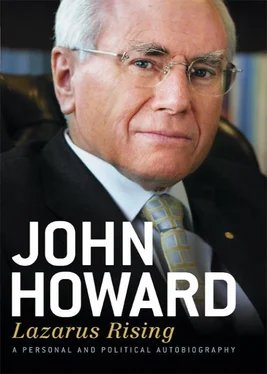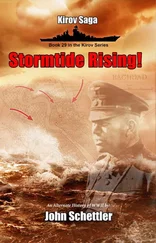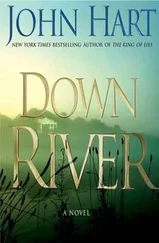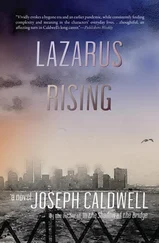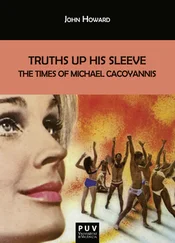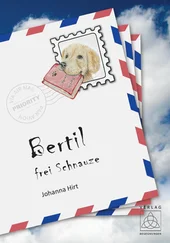Dad’s unit spent several months encamped on Salisbury Plain, in Wiltshire, undergoing rigorous training. It left for France late in November. My father spent his first day in the horrible trenches of the Western Front on 1 December 1916, near Armentières.
While my father was at the war, his parents and the remaining eight children moved from Maclean to the suburb of Petersham, in Sydney. My grandfather, who was a marine engineer, had a number of very different jobs in his working life, from harbourmaster at Coffs Harbour to starting what was believed to be the first motion picture show in northern New South Wales, at the Caledonian Hall in Maclean. I suspect that the reason for the family leaving the Clarence during the war was that my grandfather would have found it easier to obtain work in Sydney.
In July 1917, and at the age of 44, my grandfather, Walter Herbert Howard, also enlisted in the 1st AIF. He wound up in the 56th Battalion of the 5th Division, arriving in France during the early part of 1918. Meanwhile, my father had been gassed during a German attack near Messine Ridge, in Belgium, in July 1917; he returned to the front after a brief hospitalisation. For the rest of his life he would experience the aftereffects of the mustard gas he ingested, in the form of weakened lungs and recurring bouts of dermatitis.
The Australian divisions to which my father and grandfather were attached both took part in the Battle of Villers-Bretonneux in April 1918. The gratitude of the villagers from there to les Australiens, who halted a major German advance during the liberation of the town, persists to this day. Villers-Bretonneux is the site of the giant Australian War Memorial to those who perished on the Western Front, and the place where a special Anzac Day ceremony is now held.
Later that year, by a remarkable coincidence, my father and grandfather met near the French village of Clery on 30 August 1918, on the eve of the battle of Mont St Quentin, in which my father’s unit participated. Just three days later my grandfather was wounded in the stomach, evacuated and took no further part in the war.
Eighty-two years later, as Prime Minister of Australia, and with the assistance of the very helpful army defence attaché, Colonel Chris Galvin, from the Australian Embassy in Paris, I was able to establish roughly where my father and grandfather had met up all those years ago.
One of the journalists who accompanied me on that visit, Tony Wright of the Age, described the scene thus:
On Friday, at the village of Clery, between a farmhouse and the great marshes and ponds and swiftly-flowing streams of the Upper Somme River, those experts found for him the most likely spot where his father and grandfather had met. Howard carried with him excerpts from his father’s wartime diary. The entry for August 30 1918, reads simply ‘Met dad at Clery'. Here in Clery, close to the slopes of Mont St Quentin, the site of one of the great battles of World War I, Howard experienced a sort of coming home of the heart. You could see it in his face as he peered intently at the map laid out before him, not heeding the rain falling or the small crowd milling about him. 2
Wright had captured the emotion of the occasion for me.
I had attended the 85th anniversary of the landing at Gallipoli, at Anzac Cove, and then called to see President Chirac in Paris before visiting the battlefields. French gratitude for the huge sacrifice of Australia in defence of France, so many years before, was not forgotten. At the beginning of our discussion, the President expressed the thanks of his nation for the war service of my father and grandfather.
It was fairly unusual to have father and son fight in the same war. My grandfather died when I was only nine, and it was only occasionally that I talked to my father about his wartime experiences. His generation were a reticent lot. Who could blame them? They had lived through unimaginable horrors, and to come home alive and intact would have been a miracle to celebrate in itself. All those years ago, veterans were encouraged to forget about things, and not talk about their experiences. That was thought to be the right therapy. There weren’t too many counsellors then, but returned soldiers were welcomed home as heroes, and in addition to repatriation benefits a variety of special schemes were set up to help them.
My father usually marched on Anzac Day, in Sydney, and the family would go and watch the march. The last Anzac Day that he was alive was in 1955. He hadn’t been very well that year so didn’t march. Instead he stayed at home, propped himself up on the couch in our back room, and reminisced with me, his youngest son, about his time on the Western Front 40 years earlier.
He told me of being detailed to escort an Australian officer back from the front, towards the end of the war. When they came under heavy attack the other man panicked, telling my father that he had been at the front for three years and was going on extended leave, and feared he would get hit before he made it to safety. There would have been numerous stories of men who had dodged bullets for several years, only to be hit minutes from the relative safety of being away from the front. I recall the story so vividly because Dad rarely spoke about the war. Like most Australians who served in that conflict, he thought that Australian soldiers were the equal of, or superior to, any others. Dad had no hostility towards the Germans who had been his enemies.
When my father came back from the war, he resumed his apprenticeship with CSR, only this time it was at Pyrmont, in inner Sydney, as his family had decamped there. According to my mother, he was retrenched in the early 1920s, during a slump, when the company had a policy of giving preference to the retention of married employees. My father was then still single.
After my mother left school she was employed doing office work with Nock & Kirby’s, then a well-known Sydney department store, which disappeared as a separate entity in the 1980s. Two of Dad’s sisters also worked in the office at N&K, and it was through them that my parents met.
I took a part-time job with that store in the late 1950s whilst going through university. I was in the pet section for a time, which resulted in Bill Hayden as Opposition leader, years later, dubbing me a budgerigar salesman. The description amused me.
My parents married at the Presbyterian church, Marrickville, on 11 July 1925 and honeymooned at the still-standing Clarendon Guesthouse, Katoomba, in the Blue Mountains west of Sydney.
My mother, born Mona Jane Kell in 1899 in Smith Street, Summer Hill, an inner suburb of Sydney, always found immense security in the familiarity of her home environment. She would often say to me that if she started early in the morning, she could walk to all of the locations in which she had lived and be back at home by lunchtime. Whilst a bit of a stretch, the point being made said a lot about my mother. Mum did not like straying far from her roots, either geographically or the value system by which she lived.
To my mother, family was everything. From her immediate family of husband and four sons to the very large extended Howard family, my mother’s life was all about the welfare and, importantly, the stability of her family. Her early family life had been far from happy: losing her mother to a brain tumour at age eight, and having a father whom she clearly adored, but who was a heavy drinker, she plainly found in my responsible and sober father a source of security and dependability.
The heavy drinking of my grandfather had a lasting impact on my mother. She retained throughout her life a real dread of alcoholism and virtually anything associated with drinking. I enjoy a drink but realised, as the years went by, how deep and understandable had been my mother’s reaction.
Читать дальше
